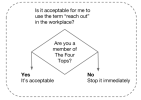Moderator note: split from
Impact on the railway of current civil disorder in various locations
Hull Station appears to be "cut off" from rail service activity at the moment according to the nationalrail.co.uk disruption page. "The police dealing with an incident at Hull means that all lines are blocked. Hull station is closed to protect customers safety due to an unsafe environment in...
www.railforums.co.uk
Alternate? Surely "alternative"??Hull Station appears to be "cut off" from rail service activity at the moment according to the nationalrail.co.uk disruption page.
"The police dealing with an incident at Hull means that all lines are blocked. Hull station is closed to protect customers safety due to an unsafe environment in Hull City Centre and the surrounding areas near the station. Trains are unable to call at this station for customers to disembark. Trains will terminate and start at alternate stations where possible."
Have there been any other locations so far where rail operations have been impacted?
Last edited by a moderator:


